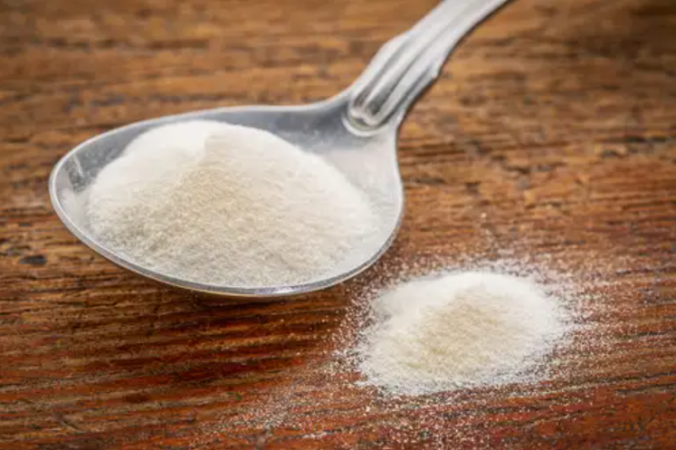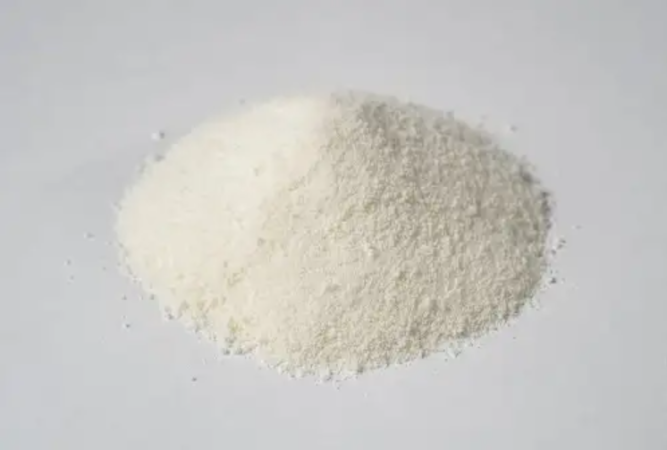
Did you know collagen is essential for skin, muscles, ligaments, and cartilage? Collagen deficiency is related to several health conditions, such as joint problems, osteoporosis, the appearance of wrinkles, and even dental problems.
For a decade, protein has been under the spotlight of the cameras due to its benefits for skin care. However, collagen is more than a supplement or an additive to beauty products. Today we teach you everything you need to know about it, emphasizing its importance, benefits, and contraindications.
Contents
What is collagen?
Collagen is the most essential protein in our body since it represents more than a quarter of our protein. It is the most significant component of our bones and skin but also in the joints, muscles, tendons, dentin, cornea, hair, etc. That is, it is distributed throughout our body.
It is a fundamental element for the proper functioning of our body; It is present in the form of flexible and very resistant fibers —collagen fibers— that compact, stretch, and vary in diameter depending on the tissue of which they are a part.
Its primary function of collagen is to provide resistance and flexibility to the body, allowing us to move, stand, and look good. From a physiological point of view, it gives structural support to the extracellular space of connective tissues.
Contrary to popular belief, there are different types of collagen. Indeed, and following the experts, 28 classes have been identified, although type I and IV are the most important. To give you an idea, 90% of the collagen available in the human body corresponds to type I.
What happens if we lack collagen?

By knowing the function of collagen in our body, we can deduce the importance of maintaining good protein levels. This is necessary to have a good quality of life and prevent health problems.
Our body produces collagen naturally. However, from the age of 30 or 40, the ability to generate it is gradually lost. This will cause the following symptoms related to aging, both at the health and aesthetic level:
- Aging of the skin, loss of smoothness and firmness, and appearance of wrinkles.
- Difficulties in the mobility of the joints can also lead to inflammation and pain.
- Loss of bone density.
- The appearance of varicose veins.
- Hair loss.
- Dental problems.
Several diseases and disorders related to its deficiency have been identified. For example, Ehlers-Danlo syndrome, osteogenesis imperfecta, infantile cortical hyperostosis, congenital spondyloepiphyseal dysplasia, Stanescu-type spondyloepiphyseal dysplasia, type II achondrogenesis, Legg-Calve-Perthe disease, and many others. All of these are hereditary.
Collagen in men and women
Although both men and women suffer the progressive loss of the ability to generate collagen, they are the ones who usually suffer earlier and more suddenly due to hormonal changes. For this reason, it is more common for women to suffer bone density and joint problems earlier.
However, there is an exception for people who do a lot of sports. These are also prone to joint problems earlier due to the wear of collagen fibers that causes continued movement. We highlight two conditions related to its progressive degeneration.
Osteoarthritis

It is one of the most common diseases due to the wear of cartilage —and collagen— which, in this case, is the one that covers the bones of the joint as if it were a pad. This degeneration of cartilage collagen means that these bones are not protected and rub against each other continuously, which causes inflammation and pain.
Some factors influence this loss of cartilage, such as excessive exercise, a sedentary lifestyle, or age. However, if we add collagen to our diet, we can delay this problem, which can cause much pain.
The rheumatologist is the specialist who will be in charge of diagnosing and developing a treatment in case we suffer from osteoarthritis. The disease is a common cause of sick leave due to incapacity for work and significantly worsens the quality of life of the people suffering from it.
osteoporosis

Although we usually associate osteoporosis with a lack of calcium, collagen also plays a fundamental role in bone density. The reason is that it is part of the structure in which this mineral is fixed. When collagen degrades, the bone becomes increasingly fragile, which exposes it very quickly to any fracture or injury.
This disease does not usually present symptoms until we suffer a fracture or perform the relevant examination for any reason. This confirms the need to prevent it, including collagen in our diet or as a supplement after thirty.
Menopause is a critical moment in this disease. However, other factors can also be decisive, such as diet, especially when it is poor in nutrients, lack of exercise, and the consumption of some medications.
collagen as a supplement

The way to slow down the degradation of this component and avoid its health problems is to take a supplement of this protein as soon as we start to feel the symptoms. It is even possible to do it to prevent it from age 30.
Generally, 10 grams of assimilable collagen is prescribed daily. The best known is hydrolyzed collagen, a soluble nutrient we can mix with food.
Natural collagen supplements, which we can buy from herbalists, dietetics, and pharmacies, can be made from two different sources:
- Of animal origin: from chicken, cow, or pig.
- Of marine origin: derived from fish and algae. Shark cartilage is quite well known.
In many cases, the collagen supplement is usually accompanied by other nutrients to improve its assimilation.
Collagen in food
 Another option is to incorporate collagen into our diet naturally.
Another option is to incorporate collagen into our diet naturally.
Whenever possible, it is advisable to choose ingredients of organic origin to avoid hormones and other substances that can harm health if we abuse animal protein.
To get them, we can go to a trusted butcher shop and ask for the bones of animals fed naturally. In the case of fish, we will choose the one of wild origin.
These broths require a long cooking time to be able to extract the collagen from the food, but they have the advantage that they allow us to make an economical recipe in which the ingredient is used to the maximum.
On the other hand, there is the alternative of consuming jellies rich in this component. However, we should avoid those that contain white sugar and artificial flavorings or make them ourselves with plain gelatin sheets.
It is essential to highlight the foods that, directly or indirectly, stimulate and improve the production of collagen:
- Foods rich in vitamin C: green leafy vegetables, citrus fruits (and their peelings, if they are organic), red peppers, red fruits, etc.
- Green tea: this medicinal and miraculous drink can stimulate collagen and elastin production.
- Foods rich in omega-3 fatty acids: such as oily fish, walnuts, egg yolk, olive and flax oil, and avocado.
- Foods rich in sulfur: among which we highlight onion, olives, celery, and cucumber.
Benefits of ingesting collagen
As we have seen throughout this article, collagen is associated with multiple bodily functions beyond aesthetics. In this sense, the increase in the intake of collagen as a supplement and food has numerous health benefits, among which the following stand out:
- Improves the appearance of the skin – A study published in the journal Nutrients demonstrated the effects of this protein on the skin. The study shows that a supplement with 2.5 grams of collagen, along with other micronutrients, can improve skin hydration, elasticity, roughness, and density.
- Relieves joint pain: Collagen intake can improve the symptoms of some bone and joint diseases. An article in the International Orthopedics magazine showed that collagen can reduce joint pain and stiffness in people with osteoarthritis. It also relieves joint pain in high-performance athletes.
- Could prevent bone loss: A study published in Nutrition in Disease Control and Prevention journal demonstrated the effectiveness of combined calcitonin and collagen therapy in treating osteoporosis. The study showed a notable improvement in both symptoms and bone density.
- Could increase muscle growth: According to an article in Nutrients magazine, the combination of hypertrophy exercises and collagen supplements has excellent benefits. The men who combined this therapy during the experiment had an increase in body mass, fat-free mass, and evident muscle strength.
From a clinical point of view, and according to specialists, collagen is used to repair tissues such as bones, tendons, ligaments, and skin. Similarly, it is also used as a sealant, implant coating, adhesion barrier, and in tissue engineering devices.
Collagen contraindications
The consumption of hydrolyzed collagen does not have significant contraindications since it is a natural product easily assimilated by the body. This is so as long as it is quality-guaranteed collagen and the doses indicated by the manufacturer or doctor are taken.
However, the following people should avoid its consumption:
- If you have an allergy to animal protein. It is essential always to find out the source of the collagen.
- If you suffer from hereditary phenylketonuria or intolerance to phenylalanine.
Lastly, those people who follow specific diets must consider that collagen is a vibrant source of protein. For all these reasons, its intake is a requirement that we should not overlook, especially in adulthood.
Before concluding, and as a complement to some ideas we have already presented, remember that some habits mediate their degeneration. Exposure to the sun, smoking, and eating ultra-processed foods contribute to its deterioration. Before considering the intake of a collagen supplement, consult your specialist for greater control.